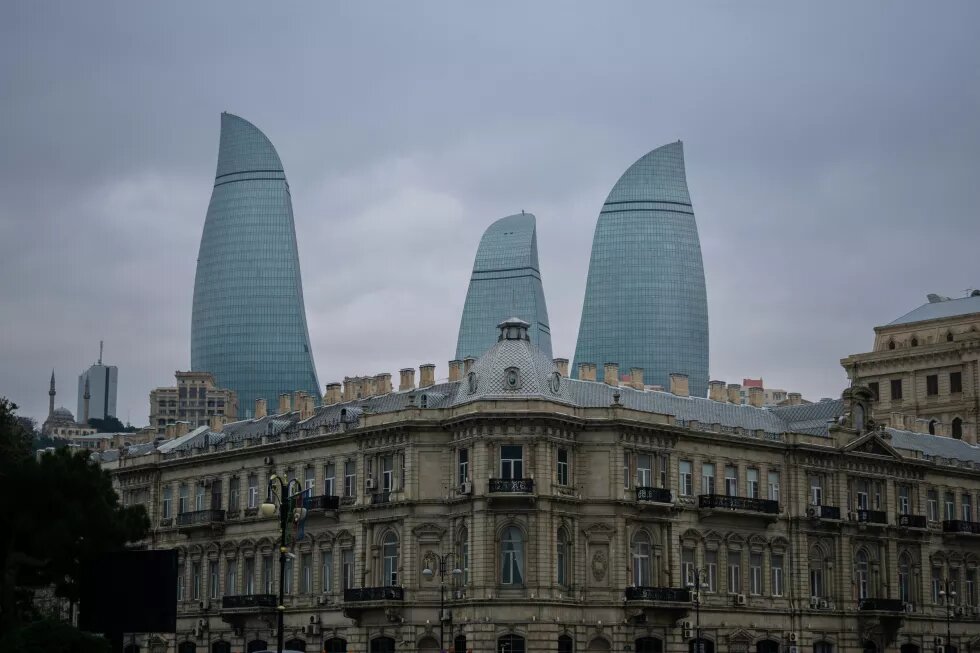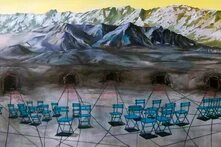In December 2023, Azerbaijani President Ilham Aliyev surprisingly announced snap presidential elections. Accordingly, Azerbaijani voters will go to the polls on February 7 instead of April 2025. In their analysis, Hamida Giyasbayli provides insights into the complex domestic and foreign policy background of these elections, which clearly signal one thing: the consolidation of authoritarian power.

The recent political developments in Azerbaijan, while shocking, unfold against a backdrop of historical continuity marked by the Aliyev family's long-standing rule. The exodus of Armenians in Nagorno-Karabakh after a 9-month blockade and the September military offensive, stalling peace negotiations, and a crackdown on civil society that followed have pushed Azerbaijan into a critical juncture. Against these turbulent developments, President Ilham Aliyev's unexpected announcement of snap presidential elections on December 7th, 2023, a year ahead of schedule, and with a mere two months for the campaign, aggravates already deteriorated conditions for human rights.
The Aliyev family's dominance in Azerbaijan spans nearly three decades, with the late Heydar Aliyev, an ex-Soviet security service general, holding power between 1993-2003, followed by his son, Ilham Aliyev, who has maintained the presidential position for another 20 years. As Ilham Aliyev seeks a fifth term for an additional seven years, his popularity has been bolstered by a tough stance towards Armenia post the 2020 Nagorno-Karabakh war and a consistent pursuit of "conflict resolution" through military means. His popularity grew even more in 2023, after the September military operation and full displacement of the Armenian population in Nagorno-Karabakh, when Azerbaijan regained full control of the territory.
Pivotal moments in Aliyev's consolidation of power occurred in 2009 and 2016 when referendums granted him an indefinite possibility of being elected for up to seven years, compared to the previous five-year term limit. According to OSCE election observation, the 2018 elections saw Aliyev secure a win with minimal competition, as major opposition parties boycotted the process. Despite allegations of deliberate falsifications, he claimed a majority of 86% of the votes. Azerbaijan's classification as Not Free in the Freedom House global freedoms report underscores its status as a consolidated authoritarian regime.
Key Candidates' Platforms
The previous electoral timeline would have suggested municipal elections in December 2024, then parliamentary elections in February 2025, and finally, presidential elections in April 2025. The current snap elections left only 2 months for the electoral campaign, making concerns over the limited time available for candidates to present their platforms, engage with voters, and foster a robust democratic discourse very valid.
President Ilham Aliyev called for snap elections in Azerbaijan citing the completion of an epochal era with the full restoration of sovereignty after the military operation in September. He also referred to the significance of holding elections in all territories, especially the recently reclaimed regions, with the presidential election deserving to be the first in the sequence of elections. Aliyev's election platform is propelled by the slogan "The Victorious Leader of a Victorious People!".
Aliyev's platform focuses on several key areas like social reform packages, diversification of the economy, and development of the national defense industry. A significant part of the platform is dedicated to the "Great Return" of internally displaced people to the territories recaptured from occupation. Signing a peace treaty with Armenia in the next 5 years is also part of the platform, as well as improving the system of ensuring human rights and freedoms through legislative reforms.
However, President Ilham Aliyev's two-decade rule has systematically eradicated potential alternatives to his rule. The Central Election Commission approved a total of 7 presidential candidates, the majority of whom are known for their loyalty to Aliyev, fervently advocating for his candidacy during live debates.
All six remaining candidates predominantly use themes of "Victory" or a connection to social welfare in their slogans. Some noteworthy proposals during the debates included the adoption of a new Constitution for a parliamentary republic and the construction of a new capital in Agdam to alleviate the burden of traffic on Baku city.
Crisis in Political and Media Freedom Ahead of the Elections
In a storm of developments, Azerbaijani civil society is struggling with intensified repressions, notably the targeting of journalists, amid a backdrop of controversial legal changes and a tightening grip on the political opposition. The nation witnessed a drastic decline in registered political parties, from 59 in 2022 to 19 by September 2023, following the enactment of stringent party registration criteria. The law raised the membership requirement for registration from 1,000 to 5,000 and initially, key opposition parties such as Azerbaijan People's Front, Musavat, and Republican Alternative (REAL) were denied registration for not meeting the new criteria. However, the Ministry of Justice later reversed its decision without providing any explanation and secured the registrations of the mentioned political parties.
Simultaneously, Azerbaijan's media landscape is under tight control, dominated by state-owned outlets, with independent sources limited and President Aliyev's crackdown on critics leaving little room for independent journalism. A recent surge in arrests, particularly targeting Abzas Media known for anti-corruption reporting, has drawn international concern, emphasizing the challenges faced by media organisations in the country. New media restrictions, including a public register of journalists, have raised alarms among media freedom advocates. Critics argue that these amendments, operational since October 2022, risk suppressing critical reporting and legitimising censorship, further exacerbated by a selective registration process lacking clear justification.
Disappointed Hopes for Reforms
Contrary to public expectations for potential reforms following the second Nagorno-Karabakh War, the government's decision for hastily conducting snap elections has raised questions about the direction of internal political developments. Isa Gambar, Chairman of the National Strategic Thought Center and the former chairman of Musavat party, noted that people expected reforms that would bring about increased freedoms, improved social welfare, and the eradication of corruption and monopolies.
There was also hope for political changes, potentially through a referendum, encompassing the expansion of parliamentary powers, a shift to parliamentary rule, and adjustments in the administrative division of the country. Moreover, there was a call by the opposition for proportional parliamentary elections to enhance representation and adherence to democratic standards of power distribution. However, contrary to these expectations, the government opted for hastily conducting snap elections.
Partial Opposition Boycott
Reacting to the snap elections, two of the registered political parties, Azerbaijan Popular Front Party (APFP) and Musavat, expressed concerns about the undemocratic nature of the political situation in Azerbaijan, highlighting issues such as political repression, arrests, crackdown on freedom of speech, and restrictions on opposition activities.
Both APFP and Musavat decided to boycott the upcoming presidential elections, citing various reasons including the arrest of party members, like prominent opposition leader Tofig Yagublu, lack of a democratic pre-election environment, and government tactics to minimise the opposition’s preparation. Musavat and APFP criticise the government for making a sudden decision on early presidential elections without public discussion, viewing it as an attempt to turn the election into a mere formality.
Snap Elections in the Shadow of Global Geopolitical Dynamics
The Azerbaijan Popular Front Party chairman Ali Karimli links the lack of competitiveness and credibility in the Azerbaijani election process to a decline in Putin's popularity due to unaccomplished victory in the war with Ukraine. In his opinion, the call for early elections in the context of the impending Russian presidential election suggests that President Aliyev seeks to fortify his position amid potential challenges for the Putin government. Political analyst Zardusht Alizade also believes that Aliyev’s call for snap elections ensures that Russia will not meddle, providing Aliyev with an opportunity for an uncontested victory, especially given his recent success in Nagorno-Karabakh.
Azer Gasimli, head of the Institute of Political Management, envisions the potential for an economic recession as the driving force behind the decision for snap elections. He anticipates political frictions in the relationship with Russia, particularly concerning the potential withdrawal of the peacekeeping contingent from Nagorno-Karabakh in 2025.
Concerns Over Democracy and Rights
The Election Monitoring and Democracy Studies Center (EMDS), a local election transparency advocate, issued a statement expressing concern about Azerbaijan's early presidential elections scheduled for February 7, 2024. While acknowledging legal compliance, EMDS criticises the frequent use of early elections, citing a misalignment with democratic constitutional principles.
The statement highlights challenges, including the imprisonment of around 200 political prisoners, new laws restricting freedom of expression, online censorship, and persecution of activists for social media posts. EMDS contends that these factors undermine democratic conditions for the upcoming elections, impeding civil society organisations' efforts in voter education and electoral rights protection.
International Election Observation
A number of international organizations and actors, including the OSCE Office for Democratic Institutions and Human Rights (ODIHR), the Commonwealth of Independent States (CIS), the Organization of Islamic Cooperation (OIC), and the Shanghai Cooperation Organization (SCO), were invited to observe the snap elections. While ODIHR has already deployed an Election Observation Mission for this election, the European Parliament announced that it will not observe the snap presidential elections as no invitation was extended by the Azerbaijani side.
The Parliamentary Assembly of the Council of Europe (PACE) also mentioned the lack of an invitation to observe the election and recently refused to ratify the credentials of Azerbaijan's PACE delegation, expressing its concerns over political prisoners, displacement in Nagorno-Karabakh, and rapporteur visit restrictions. On January 24th, just before the Assembly would go into debate and voting on the matter, the Azerbaijani delegation announced the suspension of its presence in PACE until further notice and accused the Assembly of "Azerbaijanophobia".
From Eurovision Glory to Climate Leadership?
As Azerbaijan prepares for snap presidential elections on February 7, 2024, the country's hosting of the UN Climate Change Conference (COP29) in November 2024 is part of its global image-building strategy. Yet, the elections cast a shadow over international deals, including its gas supply agreement with the EU.
In the lead-up to the elections, Europe's heightened reliance on Azerbaijan's gas exports, particularly in the aftermath of the Russian invasion of Ukraine, is noteworthy. The EU's controversial deal to double gas supplies from Azerbaijan by 2027 has drawn criticism from human rights groups. Concerns about aligning with an autocratic ruler, as an alternative to Russia, raise questions about the EU's stance on political reforms, especially in light of issues related to political prisoners and civil society restrictions.
Taking its own stance, the European Parliament, in its October 2023 resolution, condemned Azerbaijan and urged a reassessment of ties in response to the Nagorno-Karabakh crisis. Despite these concerns, the successful bid for COP29 was secured through a prisoner release deal with Armenia, highlighting the geopolitical leverage the country continues to wield.
COP29 will take place against a backdrop of historical police brutality targeting activists and environmental protests, exemplified by incidents like the 2023 crackdown in Soyudlu village, where local residents protested a waste reservoir of a gold mine. Azerbaijan’s leaders should expect COP29 to enhance international scrutiny over Azerbaijan's domestic policies, including the snap presidential elections.
However, within the context of sustained repression and consolidation of power, an optimistic scenario for Azerbaijan's future cannot be drawn easily. Rather than offering concrete predictions, let me quote Niels Bohr, the Nobel laureate in Physics, who aptly said, "Prediction is very difficult, especially if it's about the future!"

